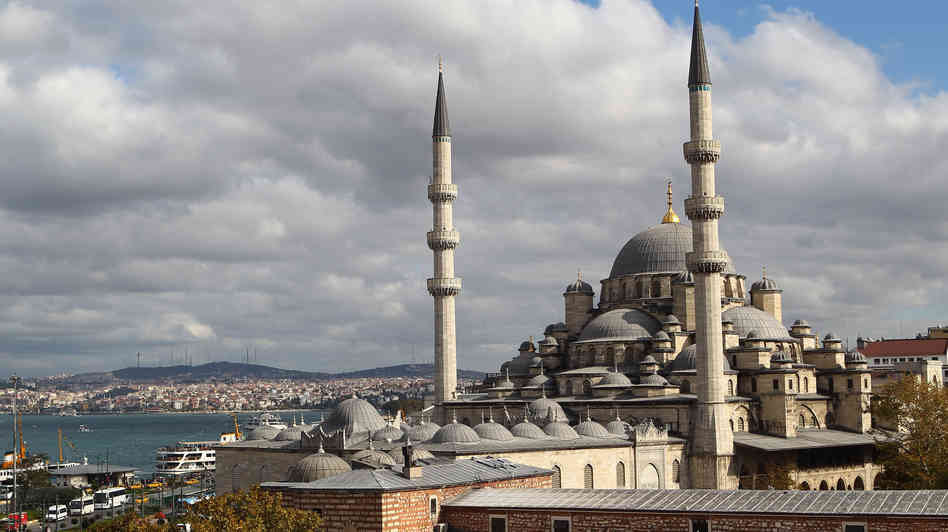MOSCOW, October 8 (RAPSI, Ingrid Burke) - The European Court of Human Rights (ECHR) held Tuesday that Turkey violated the free expression rights of a pair of journalists, a Turkish daily, and its owner, in light of an injunction that was imposed against a national newspaper at the president’s request.
According to the judgment, Turkey’s current President Abdullah Gül gave an interview with The Guardian in 1995. At the time Gül was a Member of Parliament with the Welfare Party. The judgment quoted a portion of the interview establishing Gül as a well-dressed and charming politician with an “unmistakably radical” message, which served as “a direct challenge to Turkey’s unique status as the only secular democracy among 52 Muslim countries.”
One day following the publication of The Guardian interview, a Turkish daily called Posta published a copy of The Guardian piece alongside a synopsis of the interview, which claimed that Gül had “openly defied the secular system and the republic.”
The Guardian then published another article the following month which stated, as quoted in the judgment, “Abdullah Gül, deputy leader of the pro-Islamic Welfare Party, said state prosecutors planned to take him to court because of a Guardian article which quoted him as saying that his party wanted to change Turkey’s secular system… Mr Gül said that he did not mean to abolish the Turkish republic, simply to end an era of public unhappiness.”
The judgment notes that the Welfare Party was dissolved by the Constitutional Court, after which point Gül was instrumental in the formation of the Justice and Development Party (AKP). Having held various positions of leadership, Gül was picked as the AKP candidate for president in 2007.
A few days after Gül’s presidential candidacy was announced, Turkish daily Cumhuriyet ran a political advertisement quoting Gül as follows: “It is the end of the republic in Turkey ... We definitely want to change the secular system.”
After Cumhuriyet explained that the quote had been taken from Gül’s Guardian interview, another major Turkish newspaper Hürriyet ran an article reporting that The Guardian journalist that had conducted the interview confirmed Gül’s use of the statement: “we will change the secular system” during the interview.
Gül was elected president in August 2007..
In May 2007, Gül had filed a civil action against the applicants, seeking compensation for defamation in connection with the advertisement.
According to the judgment, Gül asserted that he had informed The Guardian that he had not made statements attributed to him in the initial interview, and that the British news agency had issued a correction in the form of its second article – noting that he wanted to end public unhappiness, not to abolish the Turkish republic. He claimed that Cumhuriyet had acknowledged the statement’s inaccuracy, and furthermore that the statement failed to serve the public interest insofar as it lacked currency.
A Turkish court promptly granted an injunction, without hearing the arguments of the applicants, against the further publication of the quote “as well as any news that may be subject to the [present] court proceedings.”
The injunction was lifted in 2008 after Gül’s case was withdrawn at his own request. He had stated that while he felt that his rights had been violated, he did not feel it was appropriate to pursue the case in light of the fact of his presidency.
Article 10 of the European Convention of Human Rights protects the right to freedom of expression, but asserts that this right may be subject to formalities and restrictions in light of such elements as the protection of a person’s reputation. Any such interferences should, however, be proportionate and legitimate.
Considering the facts, the ECHR reasoned that “In the instant case, the first opportunity for the applicants to present their counter-arguments was at the first hearing, which took place one month and two days after the injunction was issued. Considering the ‘perishable’ nature of news and the specific political environment in which the impugned measure was applied, the inability of the applicants to contest the interim injunction for over thirty days placed them at a substantial disadvantage vis-à-vis their opponent and thus constituted a significant procedural shortcoming that undermined their freedom of expression disproportionately.”
The court further took issue with the scope of the injunction and the absence of a time limit or periodic review.
Finding that the interference could not be held to be ”proportionate to the legitimate aims pursued and necessary in a democratic society,” the ECHR held that the applicants rights to free expression, as guaranteed by Article 10, had been violated.
One of the applicants has passed away since the application was launched.
The ECHR ordered Turkey to pay each of the surviving applicants EUR 2,500, alongside EUR 5,100 jointly to cover costs and expenses.



